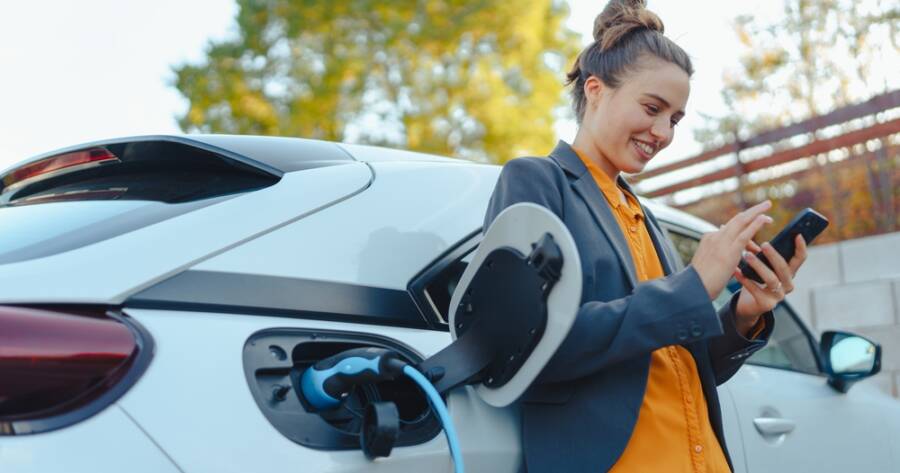Choosing between electric vehicles (EVs) and gas cars involves weighing factors like cost, performance, and environmental impact. As EV technology advances, many drivers are reconsidering traditional gasoline-powered options. While electric cars offer lower emissions and reduced fuel costs, gas vehicles still provide long-range convenience and widespread fueling infrastructure. Understanding the key differences can help you make an informed decision that aligns with your driving habits and lifestyle.
Environmental Impact
One of the most significant distinctions between electric vehicles and gas cars lies in their environmental impact. Electric vehicles produce zero tailpipe emissions, which means they do not contribute directly to air pollution in urban areas. This makes them an attractive option for eco-conscious consumers. The electricity used to power EVs can be generated from renewable sources, further enhancing their green credentials.
On the other hand, gas cars release harmful pollutants, including carbon monoxide, nitrogen oxides, and particulate matter, which contribute to air quality issues and climate change. While advances in fuel efficiency and emissions standards have improved the environmental performance of gas cars, they still rely on fossil fuels, which are finite and environmentally damaging to extract and refine.
However, it’s essential to consider the full lifecycle of both vehicle types. The production of electric vehicles, particularly the batteries, can be resource-intensive and generate significant emissions. Mining for lithium, cobalt, and other materials used in EV batteries poses environmental and ethical challenges. Therefore, while EVs generally offer lower operational emissions, the overall environmental impact depends on various factors, including energy sources and manufacturing processes.
Cost of Ownership
When comparing electric vehicles and gas cars, the total cost of ownership is a critical factor to consider. The upfront purchase price of electric vehicles has been decreasing, making them more accessible. However, they can still be more expensive than their gas counterparts, especially for higher-end models. Government incentives and tax credits in many regions can help offset these costs, making EVs more appealing.
In terms of operational costs, electric vehicles often come out ahead. Electricity is typically cheaper than gasoline on a per-mile basis, and EVs have fewer moving parts, leading to lower maintenance costs. For example, EVs do not require oil changes, and brake wear is reduced due to regenerative braking systems. In contrast, gas cars incur regular fuel expenses, oil changes, and more frequent mechanical repairs.
However, charging infrastructure for electric vehicles can present challenges. While home charging is convenient, it may require an upfront investment in a charging station. Public charging stations are becoming more common, but availability can vary, particularly in rural areas. For gas cars, the extensive network of fuel stations provides greater convenience and accessibility, making them easier for long-distance travel.
Performance and Driving Experience
The performance and driving experience of electric vehicles and gas cars can differ significantly. Electric vehicles are known for their instant torque, providing quick acceleration and a smooth, silent ride. This can lead to a more enjoyable driving experience, especially in urban settings where stop-and-go traffic is common. Many modern electric vehicles also feature advanced technology and features, enhancing the overall driving experience.
Gas cars, on the other hand, have a proven track record for performance. Many drivers appreciate the sound and feel of a traditional combustion engine, which can offer a more engaging driving experience. Gas-powered vehicles typically provide a wider range of options in terms of performance, from fuel-efficient sedans to high-performance sports cars.
In terms of range, gas cars generally have an advantage, especially in regions with limited charging infrastructure. Most gas vehicles can travel several hundred miles on a single tank, while electric vehicles may require more frequent charging, depending on the model and battery capacity. However, advancements in battery technology are continually improving the range of electric vehicles, with many newer models now offering over 300 miles on a single charge.
Maintenance and Longevity
Maintenance requirements for electric vehicles and gas cars differ considerably. Electric vehicles typically require less maintenance due to their simpler mechanical design. The absence of an internal combustion engine means fewer moving parts, which translates to less wear and tear. Battery maintenance is crucial, but many manufacturers offer warranties that cover battery performance for eight years or more.
Gas cars, however, require more regular upkeep. Routine maintenance, such as oil changes, filter replacements, and exhaust system checks, can add to the overall cost of ownership. Additionally, gas engines are subject to wear and tear from combustion, which can lead to more frequent repairs compared to electric vehicles.
Longevity is another critical factor in the discussion. Many electric vehicles are designed with a long lifespan in mind, with some manufacturers estimating that their EVs can last upwards of 15 to 20 years or more. Gas cars also have impressive lifespans, but their longevity can be affected by maintenance practices and driving conditions.
Learn More About Electric and Gas Vehicles
The choice between electric vehicles and gas cars ultimately comes down to individual preferences, lifestyle, and values. Electric vehicles offer significant advantages in terms of environmental impact, lower operating costs, and modern technology. However, gas cars continue to provide familiarity, extensive infrastructure, and diverse performance options that appeal to many consumers.
As the automotive industry evolves, both types of vehicles are likely to coexist, catering to different needs and preferences. For environmentally-conscious consumers, electric vehicles represent a step toward sustainable transportation. Meanwhile, traditional gas cars remain a reliable option for those who prioritize convenience and familiarity.
